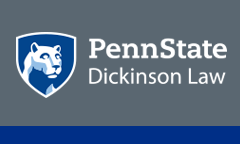Document Type
Conference Proceeding
Publication Date
2-12-2014
Abstract
This link goes to the Professor Terry’s Lichtenstein lecture, which was on the topic of her recent article about regulatory objectives for the legal profession. For Professor Terry’s scholarship on this topic, see her long article here, a short article here, and the “regulatory objectives” research area section on her personal webpage. As Professor Terry noted in her lecture, t “regulatory objectives movement” can be traced to the adoption of the 2007 UK Legal Services Act. Section 1 of that Act, which was hotly debated, set forth the regulatory objectives that the Act—and its implementation—should achieve. The UK Act was followed by initiatives in a number of other national jurisdictions that sought to identify regulatory objectives for the legal profession. Professor Terry noted that it was increasingly common to find jurisdictions adopting an explicit and succinct statement of the objectives they are trying to achieve when they regulate lawyers. In her lecture, she recommended that US jurisdictions take note of the new regulatory objectives movement and consider doing something comparable
In addition to speaking on the topic of regulatory objectives, as a Lichtenstein Distinguished Lecturer, Professor Terry was asked to write an article for the Hofstra Law Review. Professor Terry chose to write about a new topic, which was the global work of the ABA Commission on Ethics 20/20. The resulting article is entitled, Laurel S. Terry, Globalization and the ABA Commission on Ethics 20/20: Reflections on Missed Opportunities and the Road Not Taken, 43 Hofstra L. Rev. 95 (2014), https://ideas.dickinsonlaw.psu.edu/fac-works/176/
[JULIE: THIS IDEAS PAGE DOES NOT HAVE THE IDEAS URL IN THE ABSTRACT PAGE OR THE PDF PAGE.
The ABA Commission on Ethics 20/20 was established in order to “perform a thorough review of the ABA Model Rules of Professional Conduct and the U.S. system of lawyer regulation in the context of advances in technology and global legal practice developments.” The thesis of this article is that the Commission was much more successful with the “technology” aspect of its work than it was with the globalization aspect of its work. This article offers an explanation for these differing levels of success and identifies an alternative path the Commission might have taken that might have led to greater success with respect to its globalization mission.
The article begins by offering background information about the ABA's 20/20 Commission. The next section of the article discusses the current impact of the 20/20 Commission’s work. It then explains why the Commission’s technology work arguably will continue to have a greater impact than its work with respect to globalization. The fourth section identifies a “road not taken” with respect to the Commission's globalization mission. This section includes concrete steps that the ABA 20/20 Commission might have undertaken to make the globalization aspect of its work more successful. The Conclusion to this article suggests that the ABA could still – and should still - undertake these steps in order have a greater impact in a globalized world of lawyer regulation.
Speaker Information
Professor Terry’s Lichtenstein Lecture addresses the topic of regulatory objectives for the legal profession. She has written about this topic in two additional articles, which can be downloaded below.
Laurel S. Terry is a preeminent scholar working in the area of legal ethics and the international and interjurisdictional regulation of the legal profession. She has examined trends in global lawyer regulation, the need to create a global umbrella organization for lawyer regulators, and the impact of the GATS, the FATF, the Bologna Process and antitrust initiatives on legal education and legal services. Professor Terry is a prolific scholar whose work is frequently cited. A three-time Fulbright grant recipient, she has been active in international, national and state organizations involved with lawyer regulation and has served as a LawWithoutWalls™ Thought Leader and Subject Matter Expert. Professor Terry is a member of the International Bar Association and American Law Institute.
Publication Title
Howard Lichtenstein Distinguished Professorship in Legal Ethics Lectures
Recommended Citation
Laurel Terry, Why U.S. Jurisdictions Should Adopt ‘Regulatory Objectives’ for the Legal Profession the Legal Profession Howard Lichtenstein Distinguished Professorship in Legal Ethics Lectures (2014).
Promotional Material
Terry supp 1 2014.pdf (186 kB)
Why Your Jurisdiction Should Consider Jumping on the Regulatory Objectives Bandwagon
Terry supp 2 2014.pdf (600 kB)
Included in
Legal Ethics and Professional Responsibility Commons, Legal Profession Commons, Rule of Law Commons


